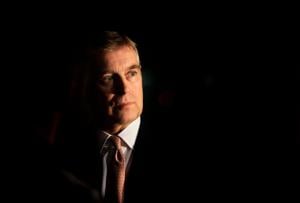Andrew Mountbatten Windsor, the younger brother of King Charles III, is entering a period of internal exile following a series of controversies that have marred his reputation. The decision to relocate him from the Royal Lodge, a 30-room residence on the grounds of Windsor Castle, to a more secluded property on the king’s private estate at Sandringham in eastern England reflects the royal family’s response to mounting public discontent.
The move comes as the British public expresses growing dissatisfaction with Andrew’s past actions and the privileges afforded to him as a member of the royal family. His exile is viewed as a significant step in distancing him from royal duties and public engagement, further isolating him from a nation that has made its disapproval clear.
Background of Controversies
Andrew’s fall from grace has been largely attributed to allegations of sexual misconduct and his association with convicted sex offender Jeffrey Epstein. In January 2022, he reached a settlement in a civil lawsuit with Virginia Giuffre, who accused him of sexual abuse when she was a minor. The settlement, reportedly worth around $12 million, did not require an admission of guilt, but it effectively ended his public and royal duties.
The backlash against Andrew intensified after his televised interview in 2019, where he attempted to defend his actions. The interview was widely criticized and led to his stepping back from royal responsibilities. Since then, the royal family has taken measures to minimize his public presence, culminating in this latest decision to move him to Sandringham.
Impact on the Royal Family
The relocation to Sandringham symbolizes a significant shift within the royal family as it seeks to restore public trust and maintain its relevance in a changing societal landscape. King Charles III’s decision reflects a desire to distance the monarchy from controversies surrounding Andrew, especially considering the heightened scrutiny the royal family faces in modern times.
While Sandringham is a private estate known for its picturesque surroundings and historical significance, the choice of residence underscores Andrew’s diminished status. The estate has often been associated with family gatherings and holidays, further emphasizing the isolation he will experience.
Public sentiment towards Andrew remains largely negative. Recent polls indicate that a majority of the British public supports his removal from royal duties and privileges. This sentiment is reinforced by ongoing discussions about accountability and the responsibilities of public figures, particularly those in positions of power.
As Andrew embarks on this new chapter away from public life, the royal family is likely to continue navigating the complexities of its image and legacy. The exile serves as a reminder of the challenges faced by modern monarchies in addressing public concerns and adapting to societal expectations.
